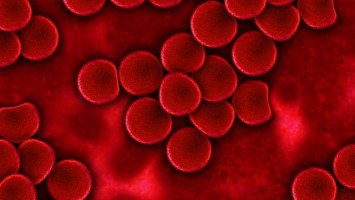
Newly published research provides preclinical proof-of-concept for the ability of PRO 140, a humanized anti-CCR5 monoclonal antibody under development by CytoDyn Inc. (OTC.QB: CYDY), to effectively block the development of graft-versus-host disease (GvHD), a potentially lethal complication of bone marrow stem cell (BMSC) transplantation.
CytoDyn is currently enrolling patients in a Phase 2 clinical trial with PRO 140 for the prevention of GvHD in leukaemia patients undergoing BMSC transplantation.
The new publication shows that when immunocompromised mice transplanted with human BMSCs received PRO 140 at a dosing schedule that approximates that being used in the ongoing human clinical trial, the mice showed successful engraftment of human hematopoietic (blood forming) cells without any signs of GvHD.
At the same time, control mice all exhibited classical signs of GvHD and none survived (p<0.01).
A 10-fold reduction in PRO 140 dose still showed a significant inhibitory effect on GvHD in treated mice, but to a lesser extent.
The study has been published online in Biology of Blood and Marrow Transplantation.
"This research provided CytoDyn with strong rationale for exploring the use of PRO 140 in its second clinical indication, the prevention of GvHD in BMSC transplantation, following our focus on the treatment of HIV infection," said Dr. Burger. "GvHD is a serious complication that limits the use of BMSC transplantation in patients with blood cancers. The potential of PRO 140 to prevent this life-threatening condition could help extend the use of BMSC transplantation, an important and effective therapy, to more patients."
PRO 140 targets the CCR5 receptor, a molecule that modulates the immune cell trafficking crucial for the development of acute GvHD and other inflammatory conditions.
Previous clinical studies by others have shown that blocking CCR5 using a chemical inhibitor can reduce the clinical impact of acute GvHD without significantly affecting the engraftment of transplanted BMSCs.
This new study with PRO 140 further supports the concept that the CCR5 receptor on engrafted cells is critical for the development of acute GvHD and that blocking this receptor from recognizing certain immune signalling molecules is a viable approach to mitigating acute GvHD.
Source: Bioscribe